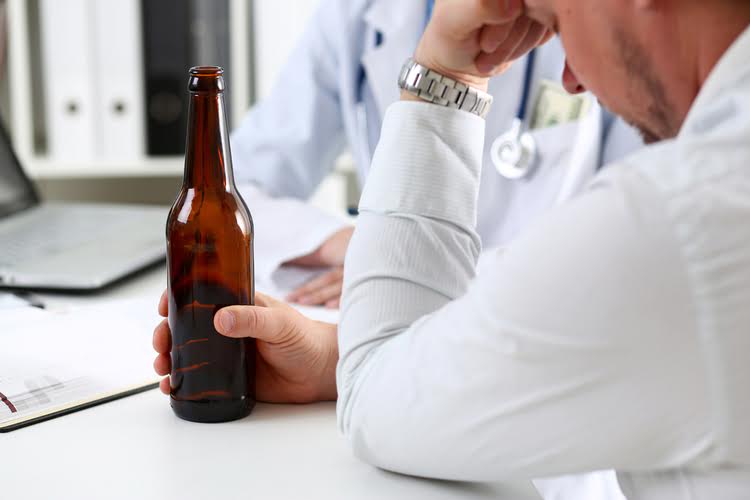Ensure every part of you—mind, body, and spirit—is nurtured and supported throughout the healing process. Holistic options unlock subconscious blocks and prevents burnout after intensive therapy. This assessment for monitoring withdrawal symptoms requires approximately 5 min to administer. Patients scoring less than 10 do not usually need additional medication for withdrawal.

Possible Complications of Alcohol Intoxication
BetterHelp offers affordable mental health care via phone, video, or live-chat. Amenities are carefully designed to provide comfort, support, and a sense of peace throughout your stay (weather-permitting). With hundreds of 5-star reviews and treatment covered by most insurance plans, it’s a trusted place near you to find real support. Plus, the Cape Cod setting, complete with beach outings and fresh ocean air (weather-permitting), provides a serene backdrop for real healing.
How can individuals reduce their risk of intoxication and its associated health consequences?
Alcohol has almost immediate effects because it is absorbed faster than it is processed (metabolized) and eliminated from the body. These symptoms often occur in stages, depending on how intoxicated a person is. The table below shows common symptoms at each level of alcohol intoxication. A doctor can diagnose intoxication by checking the patient’s blood alcohol content levels. However, it has been shown that many patients can go through withdrawal with only minor symptoms even though they receive little or no medication (13,14). An alternative to giving medication on a fixed schedule is known as symptom-triggered therapy.

How is Alcohol Intoxication Diagnosed?
These are of particular importance in alcohol intoxication as ethanol can impair gluconeogenesis, with an increased risk of hypoglycemia, and alcohol use disorder places the individual at an increased risk of thiamine deficiency. Whenever feasible, intravenous thiamine should be given before glucose, particularly if given in large amounts or high concentrations. You might go from feeling euphoric to angry, sad, or anxious in a short period. Alcohol also intensifies existing emotions, which is why people sometimes get emotional or aggressive while drinking. At this stage, many people enjoy the social and relaxed feelings alcohol brings.
The Five Stages of Intoxication: Understanding the Effects of Alcohol on the Body
- A person with a BAC between 0.18% to 0.30% is in the confusion stage of intoxication.
- Even something as simple as how much you’ve had to eat during the day can change the way you move through the stages of being drunk.
- Common symptoms include slurred speech, stumbling, and clumsiness, as well as nausea, vomiting, and changes in vision and hearing.
- With the development of effective therapy, including intensive care, death from DTs is an unusual event (14,23).
A person what is Oxford House at this stage can barely move or stand, is prone to vomiting, and may slip in and out of consciousness. The chance of an alcohol overdose is very high here, and medical help should be sought immediately. Behavioral Signs In the Euphoria Stage, a person may show lowered inhibitions and become more chatty and self-confident. Signs of impaired judgement can include becoming more careless with money, making irrational statements and showing difficulty in coordinating precise movements. At this stage, there are typically no noticeable signs of intoxication. Responsible Drinking During COVID-19- Bars, dorm rooms, parties, restaurants, and other places where people gather to consume alcohol increase the risk of transmission of the COVID-19.
- Own Your Limits is a Defense Department (DOD) education campaign, aligned to the Defense Health Agency, for the U.S. military.
- Recognizing the signs and symptoms of each level can help prevent dangerous situations and allow for timely intervention when necessary.
- Although many interventions have been tried to alleviate hangover symptoms, to date, none has clearly demonstrated effectiveness in rigorous investigations (4).
The patient is then monitored for 2 to 3 hours without further medication. Completely unconscious, a person’s body temperature will fall, breathing will gradually become shallow, circulation will slow down, muscles will cease functioning, and their gag reflex will be gone. Difficulties with motor functioning and coordination become significantly more prominent at this stage. People could begin behaving with less restraint, and judgment may be impaired. Alternatively, individuals may begin to feel excited or drowsy, have issues seeing clearly, or have minor memory lapses. There are six stages of alcohol intoxication, and specific symptoms characterize each stage.

We offer treatment for chemical dependencies such as cocaine addiction, drug addiction and alcoholism. It is extremely important to us that you receive the highest quality medical care from our qualified staff during your stay. Therefore, Cloninger and other researchers have suggested that serotonin function is related to loss of control over drinking among type II alcoholics (Cloninger 1986, 1987; Linnoila et al. 1994). Several hallucinogens may cause features of intoxication, and these include LSD and phencyclidine. Patients may experience elevated blood pressure, tachycardia, and pupillary dilatation.
- Understanding the physical symptoms of intoxication and recognizing the signs of serious complications can help prevent tragic outcomes and ensure a safe and healthy outcome for individuals who have consumed alcohol.
- Their heart rate has likely slowed as well, and their body temperature is dropping dangerously low.
- Additionally, repeated episodes of intoxication can lead to brain damage, including impairments in cognitive and motor functioning, and increased risk of dementia and other neurodegenerative disorders.
- A person at this stage can barely move or stand, is prone to vomiting, and may slip in and out of consciousness.
In some cases, becoming overwhelmed with emotions may be in which stage of intoxication does an individual become aggressive or withdrawn and sleepy your body’s reaction to alcohol combined with stress. If you find that you tend to get emotional while drinking, you should consider talking to a professional, who can assess whether your drinking is a problem and if you are dealing with a mental health condition. Getting professional medical help is necessary in situations of extreme alcohol intoxication.
What are the symptoms of alcohol intoxication?
The duration of alcohol intoxication depends on the quantity of alcohol that a person consumes. Various factors can also influence how long a person may feel drunk for. When consumed in moderation, alcohol can be part of a healthy lifestyle. Intoxication can significantly impair judgment and decision-making by altering the functioning of the brain’s prefrontal cortex, which is responsible for executive functioning, planning, and problem-solving. As alcohol is consumed, it can lead to a range of cognitive impairments, including decreased attention, memory, and reaction time, as well as increased impulsivity and risk-taking behavior.
